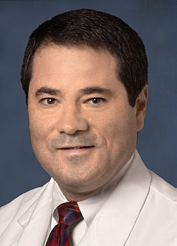
Andrew I Spitzer’s Reflection
My first summer at Camp Ramah in California, kayitz 1973, occurred less than a year before my bar mitzvah and barely a year after my parents divorced. I was the only remaining child at home. It was a time of great uncertainty and instability for me, complicated further by the age-related physical, hormonal, and emotional changes raging simultaneously.
Ramah was transformative for me in every way. I was immersed for the first time in the vibrancy of living Judaism, for which I longed throughout the ensuing eleven months. During the following two summers, I was one of a very few two-session (eight-week) campers. I simply could not get enough. Those cherished fifty-seven days at camp were the spiritual nourishment that would sustain me throughout the remainder of the year. After a summer in Israel, I returned for nine years on staff, working my way up the ranks from Mador to madrich to music director, until my curriculum in medical school required year-round attendance. After completing my residency and fellowship in orthopedic surgery, I returned as camp physician in 1994. Since then, I have spent one to two months at camp each summer as the chair of our Medical Committee, as the husband of the mum ̇hat bishul, and as the father of four campers. As I now approach my twenty-fifth summer at camp, it is clear that Ramah has provided me the stability, certainty, and purpose that I lacked during that first summer thirty-four years ago.
Ramah has enveloped my life and my family’s life. For my wife, too, who jokes that her allegiance to another Southern California Jewish camp was abandoned as part of our prenuptial agreement, Ramah has become a passion. In addition to her work during the last twelve summers in ̇hug bishul, she recently created a new program, the Legacy/Moreshet Program. By means of this program, eighty bar/bat mitzvah-age Israeli children, who have lost a sibling or parent as a victim of terror or a casualty of war, will be brought to either Ramah in California or the Berkshires this year for a two-week camp experience.
Being a part of the Ramah community has provided great blessings: from lifelong friendships worldwide to perpetual spiritual inspiration and eternal family memories. However, most significant to me is that camp has grounded me with a foundation of Jewish commitment and a recognition that in the seemingly most insignificant gesture or act, lives can be impacted Jewishly forever. Camp taught me that no matter how little time there may be, there is always more time for community involvement, service, and leadership; for volunteerism; for gemilut ̇hasadim — I learned from camp not to say “I don’t have time for that,” but rather to say, “I will make time for something so important!”
It is this blessing that has become the most meaningful for me. It is why I return to camp each summer. It is why I am president of my shul, why I go to minyanim at shiv’ah houses and bar/bat mitzvah celebrations and beritot, why I tuck my kids in at night and sometimes even get to wake them up in the morning, and why putting on tefillin is the most peaceful and rewarding moment of my day.
Shehecheyanu, vekiyyemanu, vehiggi’anu lazeman hazeh! Mazal tov to Ramah at 60, and may it continue from strength to strength in its mission of sanctifying time and infusing its campers, staff, and supporters with the love of Judaism, Jewish life, and lifelong commitment to Israel and the Jewish people.
Andrew I Spitzer, M.D., is the Director of the Joint Replacement Program at the Cedars-Sinai Orthopedic Center in Los Angeles, CA.
